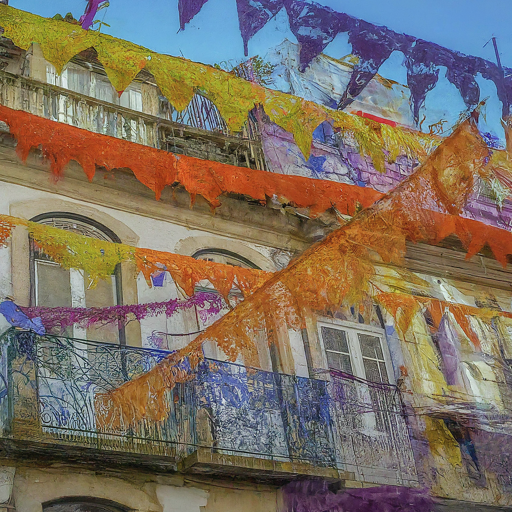1. Ban on Walking Around with No Shirt in Public
In Portugal, particularly in cosmopolitan cities like Lisbon and Porto, there are specific regulations that prohibit walking around without a shirt in public spaces. This rule is not merely about modesty but reflects a broader cultural commitment to public decorum and social norms. In these urban settings, maintaining a certain standard of appearance is considered essential to ensure that public spaces remain respectful and pleasant for all.
The prohibition is rooted in traditional Portuguese values that emphasize propriety and the importance of modesty in social interactions. While Portugal is known for its relaxed attitudes towards many aspects of life, this regulation highlights a nuanced view of public behavior, balancing casual lifestyles with the need for maintaining communal standards. The rule also serves as a reminder of the diverse ways different cultures approach issues of public decorum and personal expression.
2. No Driving with a Dog on Your Lap
In Portugal, the law prohibiting driving with a dog on your lap is a vital part of the country's road safety regulations. This rule is designed to prevent distractions that could impair a driver's focus and reaction times, thereby reducing the risk of accidents. Driving with a pet on one's lap can significantly hinder a driver's ability to maneuver and respond to sudden changes in road conditions, creating a potential hazard not only for the driver but for other road users as well.
The regulation reflects a broader concern for traffic safety and the importance of minimizing distractions. By mandating that pets be secured in appropriate carriers or seat belts, Portuguese authorities emphasize the need for responsible driving practices. This rule also highlights the growing awareness of the impact of distractions on driving and the efforts to promote safer road environments for all users.
 |
| Students Burning the Ribbons (credit:inlifehousing.com) |
3. The ‘Queima das Fitas’ Tradition in Coimbra
In Coimbra, Portugal, the ‘Queima das Fitas’ or Burning of the Ribbons is a vibrant and culturally significant tradition marking the end of the academic year for university students. This event, held in early May, is a rite of passage where students ceremonially burn the colored ribbons they have accumulated throughout their academic journey. The celebration is not only a festivity but also a profound symbol of academic achievement and the transition from student life to professional careers.
The tradition features elaborate processions, live music, and community gatherings, reflecting the deep-rooted value placed on academic milestones in Portuguese culture. The ritual underscores the importance of education and the collective experiences shared by students. It also serves as a poignant reminder of the milestones and transitions that shape personal and professional identities, celebrating the end of one chapter and the beginning of another.
 |
| Gilberto Garrido, CC BY-SA 4.0, via Wikimedia Commons |
4. The Tradition of ‘Romarias’ (Pilgrimages)
‘Romarias’ are traditional Portuguese pilgrimages that involve traveling to various sanctuaries and religious sites, often in large, organized groups. These pilgrimages are a profound expression of Portugal's deep-seated Catholic traditions and the communal nature of its religious practices. Participants, who may travel on foot for long distances, engage in acts of devotion, seek blessings, and fulfill vows as part of their spiritual journey.
The tradition of ‘Romarias’ highlights the enduring significance of faith in Portuguese culture and the communal bonds forged through shared religious experiences. These pilgrimages are not only spiritual journeys but also cultural events that reinforce the connection between individual faith and collective identity. The practice reflects a broader cultural heritage of pilgrimage that is both a personal and communal expression of devotion and tradition.
5. No Honking Your Horn Without a Reason
In Portugal, the regulation against honking one’s horn without a valid reason is a key component of the country’s traffic laws, aimed at reducing noise pollution and fostering a peaceful urban environment. This rule reflects a cultural sensitivity to the impact of noise on quality of life and the importance of maintaining a tranquil atmosphere in both residential and public areas.
By restricting horn use to legitimate safety concerns, Portuguese authorities seek to ensure that noise remains within acceptable levels, contributing to a more orderly and pleasant driving experience. The regulation underscores a broader societal commitment to reducing disruptions and maintaining harmony in public spaces. It also highlights the interplay between traffic regulations and environmental considerations, illustrating how legal frameworks can address both safety and quality of life.
6. The ‘Santos Populares’ Festival
The ‘Santos Populares’ festival, celebrated in June, is a vibrant and deeply rooted cultural event in Portugal, particularly in Lisbon and Porto. This festival honors three significant saints—Saint Anthony, Saint John, and Saint Peter—through a series of lively street parties, parades, and traditional culinary delights. The festival's unique charm lies in its festive atmosphere, where streets are adorned with colorful decorations, including streamers and paper lanterns that create a magical ambiance.
Beyond its visual splendor, the ‘Santos Populares’ festival is a celebration of community spirit and cultural heritage. The event features a range of activities that reflect Portuguese traditions, such as the grilling of sardines and peppers, which are enjoyed by locals and visitors alike. The festival is a testament to Portugal's rich history of communal gatherings and the importance placed on maintaining cultural traditions. It highlights how festivals can serve as a vibrant expression of local identity and social cohesion, bringing people together to celebrate shared values and heritage.
 |
| No1lovesu, CC BY-SA 4.0, via Wikimedia Commons |
7. The ‘São João’ Festival in Braga
The ‘São João’ Festival, held in Braga on June 24th, is renowned for its exuberant and unconventional celebrations. This festival, dedicated to Saint John the Baptist, is distinguished by its lively street parties and distinctive customs. One of the most unusual aspects of the festival is the tradition of playfully hitting people on the head with plastic hammers, as well as the throwing of garlic and herbs, which symbolizes good luck and protection.
This festival reflects the playful and communal spirit of Portuguese culture, blending religious observance with local customs and fun. The use of plastic hammers and herbs during the celebrations serves as a reminder of how local traditions can infuse religious festivals with unique, region-specific practices that enhance the communal experience. The ‘São João’ Festival highlights the vibrant nature of Portuguese festivals and their role in fostering a sense of community and joy.
8. Restrictions on Public Displays of Affection
In Portugal, regulations limiting public displays of affection, such as kissing and hugging, in specific areas—particularly near religious sites and historical monuments—are designed to preserve the solemnity of these locations. This restriction underscores the cultural importance of maintaining respect and propriety in spaces of significant historical and spiritual value.
These regulations reflect a broader cultural norm that emphasizes the sanctity of historical and religious sites, ensuring that they are treated with the respect they deserve. This approach highlights the Portuguese commitment to preserving the cultural and historical integrity of their landmarks while balancing public decorum with personal expression. The restrictions serve as a reminder of how societal norms and regulations can shape public behavior in ways that reflect cultural values and historical contexts.
9. Leaving Your Car Unattended with the Engine Running
In Portugal, it is illegal to leave your car unattended with the engine running, a regulation aimed at enhancing vehicle security and promoting environmental responsibility. This rule addresses the dual concerns of preventing vehicle theft and reducing unnecessary fuel consumption and emissions.
By enforcing this regulation, Portuguese authorities seek to address the practical issues of vehicle security and environmental impact. Leaving a car running unattended poses a risk of theft and contributes to environmental degradation through increased emissions. The regulation reflects a broader commitment to both personal security and environmental stewardship, emphasizing the importance of responsible vehicle management and resource conservation.
 |
| PESP/ Wikimedia, CC BY-SA 4.0, via Wikimedia Commons |
10. The Tradition of ‘Dia de Reis’ (Epiphany)
‘Dia de Reis’ (Epiphany), celebrated on January 6th in Portugal, marks the arrival of the Three Wise Men and is observed with a variety of cherished customs. One of the central traditions is the preparation and sharing of ‘Bolo Rei’ (King Cake), a festive cake that is often adorned with hidden figurines or beans. The person who finds these items in their slice is ceremoniously crowned as the king or queen for the day.
This tradition not only highlights the significance of the Epiphany in Portuguese culture but also reflects the joyous spirit of the holiday season. The ‘Bolo Rei’ serves as a focal point for family gatherings and communal celebrations, emphasizing the cultural importance of togetherness and festivity during the Epiphany. The practice of hiding figurines or beans in the cake adds an element of surprise and fun to the celebration, reinforcing the sense of community and shared joy that characterizes Portuguese holiday traditions.






Comments
Post a Comment